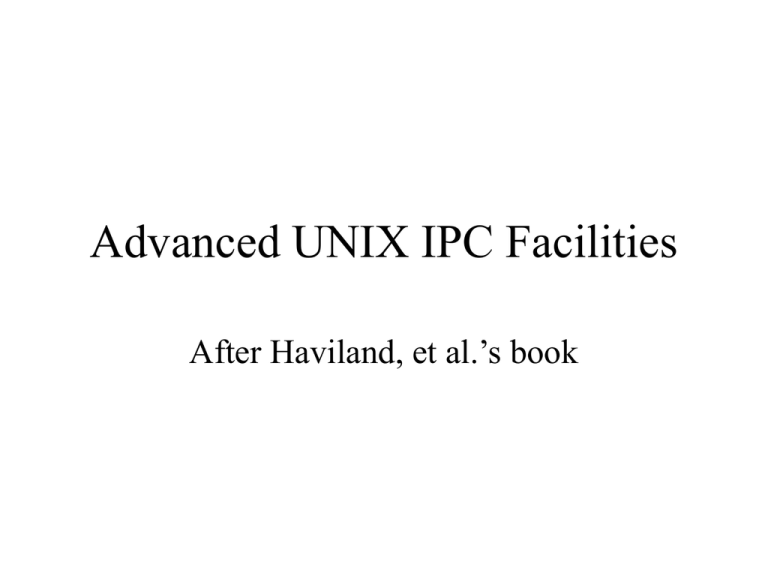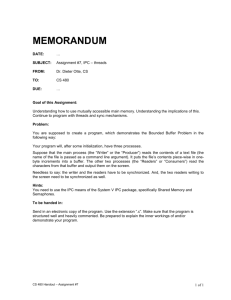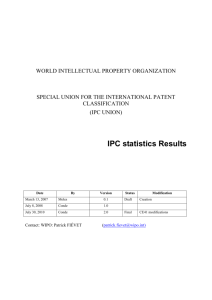Advanced UNIX IPC Facilities
advertisement

Advanced UNIX IPC Facilities After Haviland, et al.’s book Introduction and Basic Concepts • UNIX offers a variety of advanced IPC mechanisms • This makes UNIX an extremely rich system in the IPC area • Allows developer to use a variety of approaches when programming a system made up of cooperating tasks Categories of advanced IPC • Message passing • Semaphores • Shared memory IPC facility keys • • • • • UNIX has made the 3 categories of IPC as similar as possible for programming convenience The most (?) important similarity is the IPC key Keys are numbers used to identify an IPC object on a UNIX system Much like a file name being used to identify files Key allows IPC object to be shared by several processes Difference between keys and file names • Keys are not file names and carry less meaning • Actual key type is determined by implementation, and defined by key_t in <sys/types.h> • UNIX uses a simple library funciton that maps a file’s pathname to a key – Routine is called ftok( ) IPC get operation • With the get operation, a program uses a key to – Create an IPC, or, – Gain access to an existing one Mqid = msgget((key_t)0100, 0644|IPC_CREAT|IPC_EXCL); Msg queue key Non-neg id returned if successful For semaphores: semget For shared mem: shmget Other IPC Operations • Control operations – Get status information – Set control values – Actual calls are msgctl, semctl, shmctl • More specific operations to perform various functions – Do interesting work – Called “IPC operations” – For example, for message queues we have: • Msgsend • msgrcv Status data structures • When an IPC object is created, the system also creates an IPC facility status structure • This contains any administrative info assoc with object • There is one type of status structure for messages, semaphores and shared mem • However all 3 contain a common permission structure, ipc_perm Message passing • A message is basically a sequence of characters of bytes, not necessarily nullterminated • One process creates a message queue using msgget • One a queue is established, a process with the right permissions can put messages into it with msgsnd • Another process can then read this message with msgrcv Form of msgget #include <sys/msg.h> int msgget(key_t key, int permflags); Permflags • Determines the exact action perform by msgget • Two constants are relevant here, defined in <sys/ipc.h> • Can be used alone or ORed together – IPC_CREAT • Tells msgget to create a message queue for the value key if one doesn't exist • Message queue will not be overwritten if it already exists • If not set, then msgget returns id of existing msgqueue, if exists – IPC_EXCL • If this and IPC_CREAT are both set, then only intend to create new msgqueue • Return -1 if already exists








